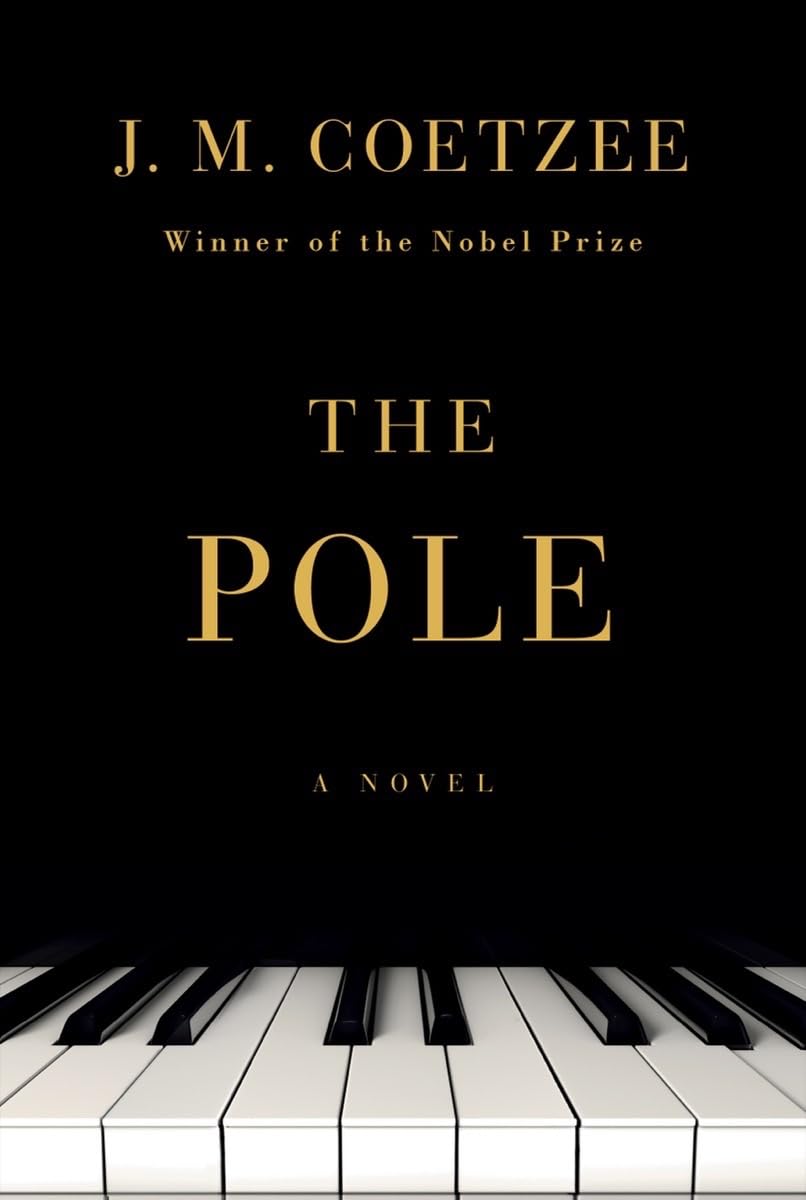The Pole

We soon learn W is in his 70s and Beatriz is in her early 50s. They are to meet with another couple following the recital but the older couple is feeling unwell so it's up to Beatriz to entertain W after the concert. She asks herself what he would expect of her: a meal, drinks, more? The "more" will not happen, she affirms to herself—she had the ideal excuse to get out of any uncomfortable situations, after all. Beatriz continues to wonder at dinner if W has a spouse and he is coy about the question. She is somewhat charmed by this fool (her thoughts). Attention, after all, is flattery.
Nothing happens that evening but the cordial meal. W emotes over Beatriz a bit. The two maintained a correspondence through email over the years—when he was on his way to or in Spain. She likes his music well enough, but not as much as Claudio Arrau's interpretation of Chopin. She particularly enjoys Arrau's interpretation of the Nocturnes. There are other minor characters throughout the novel. But the primary relationship is with W and Beatriz. At one point, W is going to give a concert in a nearby city. But, Beatriz will be at her and her husband's vacation house in Mallorca. Beatriz asks her husband if she could invite the old composer to stay a week in a detached cottage on the grounds. He humors her.
During W's stay, her husband must leave for work and cut short their vacation. Beatriz doesn't want to return with him and would rather stay in Mallorca. W ends up maintaining his schedule, meets her, and moves into the cottage for his week's stay. Immediately W asks her to run away with him to his next recital location, Brazil. Beatriz is quick to put an end to that idea. W continues to repeat the invitation. He makes pleas for her to be his muse and keep as much distance as she likes. That it need not be physical.
The Pole weighs in on intimate relations. With a change of mind Beatriz invites W to her bedroom for the last three evenings of the week. The next morning she sees him off to the train station the morning of their final day.
The next time Beatriz hears about W is in a note from someone handling his estate: W has died. A package of papers with her name on it is waiting for her in Warsaw. She could collect it if she chooses.
Beatriz cannot translate what she takes to be a box of several dozen poems in Polish. She visits Spain's embassy in Warsaw to get a list of translators and calls the first one on the list. The translator admits she translates legal documents. But, she agrees to give it a try and does several right away. One of the poems mentions someone like Beatriz, so she wants all the poems translated.
When she picks up the rest of the translations, she pays the fee in full to the translator's son. The translator is not there. She asks him for his opinion of the poems and pays the fee in full to the translator's son. He assisted with the translations and has more literary leanings than his mother. From him, we learn two things: first, that the poems are of so-so quality in his estimation with a few that stand out. No poems are in his estimation in the realm of greatness as Dante Alighieri (a high bar for anyone). Second, there is a 19th-century Polish poet named Cyprian Norwid. The translator's son also thinks "The Pole's" poetic output cannot be reviewed with the same seriousness as Norwid's. Norwid's most famous poem resembles one of The Pole's better efforts. It resembles his "Aphrodite" poem.
The novel's structure
The paragraphs in this 174-page short novel have numbers for some reason. The final chapter's paragraphs are not. Beatriz gets the final say in the form of letters to a deceased W.
Beatriz is setting the record straight. She is doing it the way Coetzee's protagonist in his novel Foe does. In that novel, Friday answers what it was like for him after he learned to read and speak for himself. It's set against the official document of record in Defoe's Robinson Crusoe.)
Towards the end of the novel, the passage appears after translating the poems. It is a letter to the deceased W from Beatriz:
Dear Witold (W's first name),
Thank you for the book of poems. You won't believe what a roundabout road they have taken, but at last they have arrived in a version I can read.
Nátan, the son of my translator, a nice young man, though a bit forward, told me he liked the Aphrodite poem the best, the one in which you sink to the bottom of the sea and meet Aphrodite in the form of a marble statue.
If Aphrodite is to stand for me, if I am supposed to be Aphrodite, you have made a mistake. I am not that particular goddess. In fact I am not a goddess at all.
Ditto if I am supposed to be Beatrice.
You complain that the undersea Aphrodite looked straight through you without noticing you. For my part, I thought I saw you pretty well—saw you for what you were and accepted you. But perhaps you wanted more. Perhaps you wanted me to see a god in you, which I never did. My apologies.
Beatriz
Why does Beatriz keep up correspondence with the ghost of W? The final sentence of the book is "P.S. I will write again".
Coetzee's quiet nature and crafted writing show that he is aware of the contingencies of life. He writes about the ambiguous lives and loves of all his characters.
Other Coetzee novels I've read are: Waiting for the Barbarians and Elizabeth Costello.